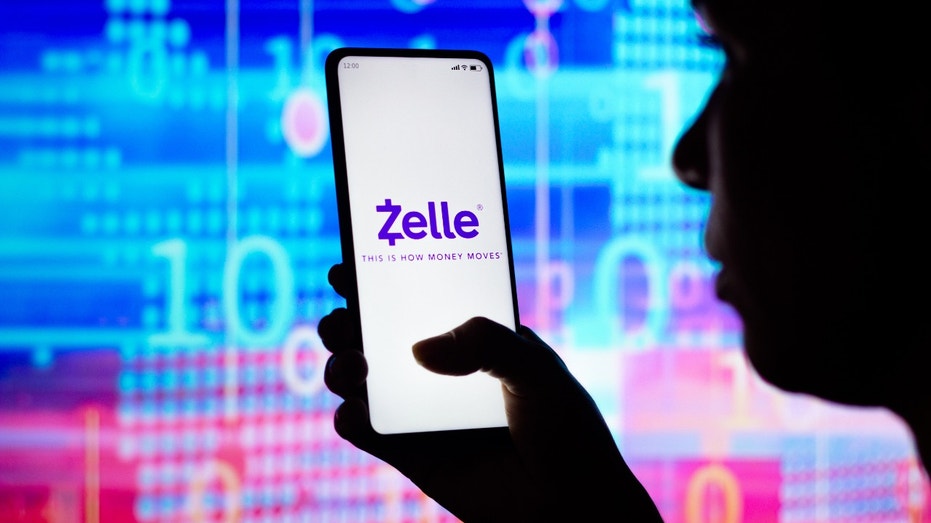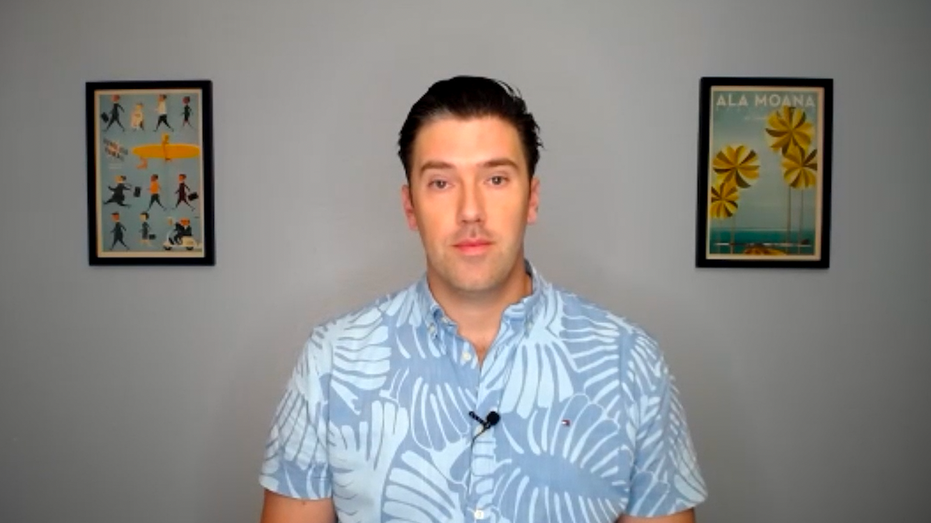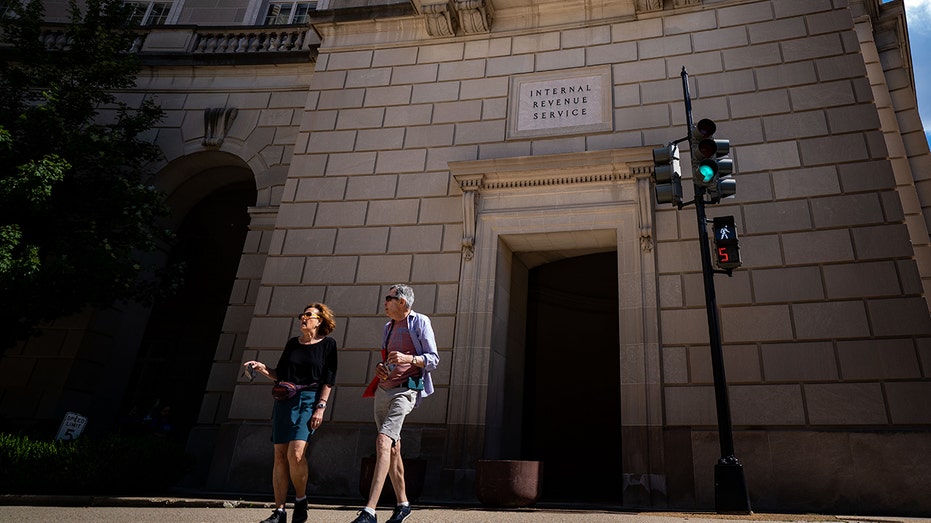Small businesses find risky tax loophole to dodge new IRS rules
Zelle says new tax reporting rules for 1099-Ks does not apply to them
Zelle ‘loophole’ to IRS rules on Venmo, PayPal isn’t for the taxpayer, expert says
Tax controversy attorney Adam Brewer unpacks the Zelle ‘loophole’ to new IRS regulations on third-party payment processors and what that means for taxpayers.
A tax loophole claim by Zelle is putting small businesses at risk.
The payment network says the new IRS 1099-K reporting rule does not apply to them. However, one tax attorney issued a warning to business owners who are relying on Zelle to dodge the tax man.
"If you're going to think of it as a Zelle loophole, think of it as a loophole for Zelle," tax controversy attorney Adam Brewer told Fox News Digital. "They're the ones benefiting from it because now they don't have to issue all these forms and deal with these headaches. But for the average taxpayer, nothing has changed."
Unlike third-party payment processors, Zelle is a bank-to-bank service that handles automated clearinghouse (ACH) transactions, meaning it does not hold funds.

Zelle says it does not issue 1099K forms (Rafael Henrique/SOPA Images/LightRocket via Getty Images / Getty Images)
According to Zelle's website, it "does not issue 1099K forms for payments made on the Zelle Network."
NEW IRS RULE ON VENMO, CASH APP PAYMENTS THREATENS TO SWEEP UP MILLIONS OF AMERICANS
Popular third-party platforms, however, are required to submit a 1099-K form to the IRS as well as users should their activity meet the new threshold guidelines.

Tax controversy attorney Adam Brewer discusses new IRS regulations on third-party payment processors in an interview with Fox News Digital. (Fox News Digital / Fox News)
"Zelle is saying this is more like a check payment because it's from bank to bank. And check payments have never been reported on 1099-K, whereas Venmo, some of these other apps, they're saying, okay, this is a legitimate debit card, credit card purchase. We're caught up in this new regulation. We're going to report it," Brewer explained. "Zelle really hasn't been clear in saying this is why this doesn't apply to us."
While Zelle does not file a 1099-K for small businesses meeting the IRS' new threshold, it does not mean transactions made on the platform are not exempt from reporting.
"You have to pay on all your income, whether it's reported on a 1099-K or whether it's not," Brewer explained. "And so I think those taxpayers, they're really putting themselves at risk of one, getting a tax bill they can't afford to pay, or two if they don't report all their income, the possibility that there will be an audit down the road for them."
In a statement to Fox News Digital, Early Warning Services, LLC, the network operator of Zelle said: "The law requiring the issuance of forms 1099K applies to third party payment networks that handle the settlement of funds."
"Payments between friends and family, and eligible small businesses sent through the Zelle Network are not subject to this law because Zelle facilitates messaging between financial institutions, but does not hold accounts or handle settlement of funds," it continued. "If payments received on the Zelle Network are taxable, it is the consumer or organization’s responsibility to report them to the IRS. If consumers have any questions about their tax obligations, we advise them to consult with a tax professional."

The Internal Revenue Service (IRS) building ((Kent Nishimura / Los Angeles Times via Getty Images) / Getty Images)
Beginning in January 2022, the IRS has a new threshold for reporting third-party payments, requiring platforms such as Venmo and PayPayl to report transactions of $600 or more. The new threshold replaced former guidance that required these platforms to report gross payments that exceeded $20,000 and made more than 200 such transactions.
The IRS regulations clearly outline, however, that this threshold is for goods and services, not personal payments for things such as paying a friend back for dinner or paying a roommate for rent.
AMERICANS WARNED ABOUT LOOMING IRS AUDITS OF VENMO PAYMENTS: ‘THEY’RE TARGETING YOU'
The smaller threshold, created as a provision in the American Rescue Plan Act, has not changed the fundamental requirement that small businesses or self-employed individuals report their income. It has simply added what Brewer coined "enhanced enforcement" prompting the IRS to have more insight into small business activity.
"Where it's [IRS regulation] less clear is how are these platforms deciding between a business transaction and a personal transaction, or what happens if a personal transaction is mistakenly classified as a business transaction," Brewer said.
"And I think legitimately that's where a lot of people's concerns are, just because it is a brand-new regulation, and we haven't seen it implemented yet," he continued.
The change is intended to crack down on Americans evading taxes by not reporting the full extent of their gross income. In an IRS report on federal tax compliance between 2014 and 2016, research found unreported small-business activities cost billions of dollars in taxes each year. It also found Americans underreport income if it is not automatically reported.
The increased insight allows the IRS to pay closer attention to online transactions, which should prompt users to be vigilant in reporting business transactions on Venmo as well as Zelle. Regardless if platforms issue businesses a Form 1099-K, taxpayers will still be held accountable for accurate reporting for business activity on networks like Zelle.
PayPal, Venmo and Cash App to report commercial transactions over $600 to IRS
Americans for Tax Reform President Grover Norquist discusses the impact of third-party payment processor apps reporting transactions over $600 to the IRS.
Critics say these new regulations amount to government overreach at its worst and that it could ultimately hurt small businesses.
"I can tell you it's not the wealthiest people, billionaires who are triggering a $600 Venmo aggregate set of transactions in a year or selling $600 on eBay," former investment banker Carol Roth said to Fox News Digital. "That is squarely in the middle class and probably to some extent the lower class."
In addition to the American Rescue Plan Act, the Inflation Reduction Act increased IRS funding by $80 billion and added 87,000 agents. Experts worry about how the new regulations, additional funding and additional agents will impact small businesses and self-employed Americans.
SMALL BUSINESSES, FREELANCERS FEAR IRS AGENTS WILL TARGET THEM FIRST: HURTS ‘THE SMALLEST AMONG US’
"The burden will largely fall on independent workers, independent contractors, freelancers, anyone who comprises the gig economy because they see them as this kind of uncharted workforce, kind of a wild workforce that has to be reined in," Independent Women’s Forum Senior Fellow Gabriella Hoffman explained in an interview with Fox News Digital.
"They think that we don't pay enough in sufficient taxes, although we are paying more than our share."
Brewer, however, argued that while there would naturally be a political conversation surrounding the "enhanced enforcement," his focus was on how to minimize taxes and prepare for tax season.
"For my clients, I don't want them to focus so much on the political motivation or why this happened or why Venmo's doing it this way, or Zelle's doing it the other way. We really want to just look at the base level, which is what is your reporting requirement?… And so from my perspective, this doesn't change anything."
IRS to begin sending 1099-K forms for some payments
Sen. Mike Braun, R-Ind., explains the details regarding the IRS starting to send out 1099-K forms for some payments on ‘Fox Business Tonight.’
Brewer emphasized that these new regulations do not affect the expectations of small businesses to report all taxable income to the IRS; it instead simply enhances the IRS' "insight" and could prompt more audits, which he says is a "legitimate concern for taxpayers."
"But if we take a big picture, a step back, it hasn't changed the reporting requirement. They were always obligated to report [income]. It's just now the IRS has some extra information to check them on."
Responding to fears about potentially incorrect 1099-Ks, Brewer shared his concerns for taxpayers who may have the added headache of audits or proving transactions were not business-related income. He noted in this case the IRS puts the "burden" on taxpayers to correct the issue with the third-party platform.
IRS TO ADD 4,000 CUSTOMER SERVICE REPS TO PREP FOR 2023 TAX SEASON
While Zelle may be exempt from the new IRS rule, experts including Brewer caution taxpayers from moving business transactions to the platform to evade the oversight.
IRS reminding people to report online payments is 'totally offensive': Ben Domenech
The Spectator Editor-at-Large Ben Domenech discusses the IRS 'targeting' the middle class and the impact of the Georgia Senate election on the Republican Party.
"My advice is you can call it a loophole, you can call it whatever you want, but at the end of the day, it doesn't change the basic tax reporting requirements that a small business is going to have and that is you have to report all your income," Brewer said. "And so whether that's Venmo, PayPal, Zelle, some other app I'm not even aware of, it has to be reported on your tax return."
CLICK HERE TO READ MORE FROM FOX BUSINESS
FOX Business' Kristen Altus, Megan Henney and Hillary Vaughn contributed to this report.
























